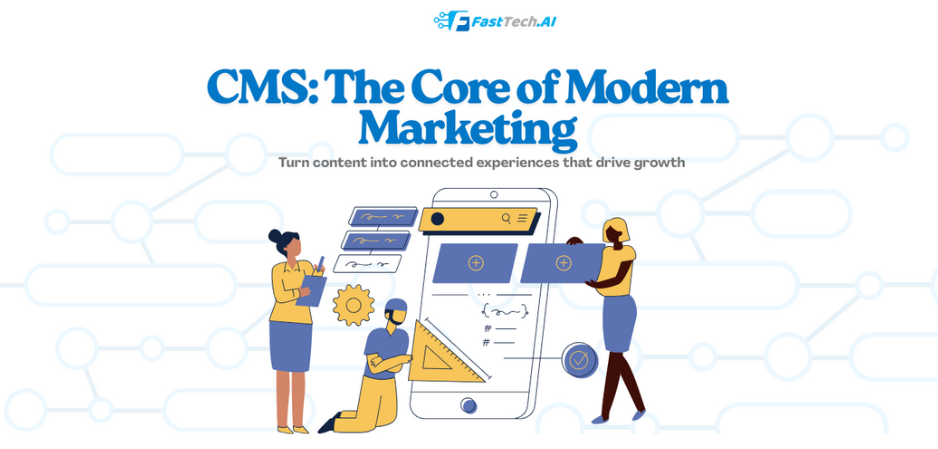The modern marketing technology stack is made up of many moving parts — from CRM platforms and analytics tools to social media, advertising, and automation software. Each plays an important role in helping businesses attract, engage, and convert customers.
But here’s what often gets overlooked: none of these tools work in isolation. They need a central platform that ties them together, ensures consistency, and delivers the content and experiences customers expect. That platform is your Content Management System (CMS).
📌 Where CMS Fits in the Martech Stack
A complete martech stack often includes:
- Contacts: Salesforce, Dynamics 365 for lead and pipeline management
- Connections: Social media, email platforms, and ad networks for customer engagement
- Content: CMS platforms such as Adobe Experience Manager, Sitecore, Drupal, and WordPress
- Customer Data & Analytics: Google Analytics, Qualtrics, Tealium, and Contentsquare for insights
Within this ecosystem, CMS serves as the hub where content, personalization, and integrations come together to power customer experiences.
🔑 Why CMS Matters
A strong CMS helps businesses:
- Deliver consistent and engaging digital experiences across channels
- Personalize content based on customer behavior and data
- Integrate seamlessly with CRM, analytics, and automation tools
- Scale efficiently without adding complexity
- Enable marketing and technical teams to work together effectively
Rather than replacing other technologies, CMS strengthens them by providing the content foundation they rely on.
⏭️ CMS as the Growth Engine
Think of CMS as the engine room of your marketing operations. It not only manages content, but also:
- Supports omnichannel delivery across web, mobile, and apps
- Powers automated and personalized customer journeys
- Provides insights into what content drives engagement and conversions
- Connects with CRM and analytics platforms to create actionable feedback loops
Platforms like Sitecore, Adobe Experience Manager, Drupal, and WordPress are designed for exactly this: making sure every customer touchpoint is supported by the right content at the right time.
🔮 The Future of CMS in Martech
As customer expectations grow, CMS platforms are evolving beyond content publishing into full experience management systems. This means:
- Supporting headless and composable architectures for flexibility
- Leveraging AI to deliver smarter personalization
- Enabling faster content operations across multiple channels
- Scaling securely to meet enterprise needs
🌐Conclusion: Why CMS Should Be at the Core
Every tool in the marketing technology stack has value. CRM captures leads, analytics provides insights, and advertising expands reach. But without CMS, these tools lack the central foundation to deliver cohesive, customer-first experiences.
That’s why CMS should be viewed not as just another component, but as the core of your martech strategy — the platform that ties everything together, drives consistency, and ultimately enables growth.

